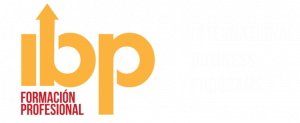In today’s completely globalized world, the cultures and traditions of all countries mix with each other in the vast majority of countries worldwide.
In this blog post, we will see how languages can positively influence the development of professional training and how they can open doors to new opportunities.
The need for language skills in the professional world
The business landscape is becoming increasingly interconnected, which has led companies to require professionals who master multiple languages.
There is a growing need for professionals capable of establishing and maintaining relationships with new clients and partners around the world to sustain the growth and development of major companies.
The most in-demand languages in the job market
As the world has become more globalized, certain languages have gained more international prominence than others. Here are the most important languages today:
English is the international language of business. When establishing business relationships abroad, English is the predominant language. It is widely used in multinational companies and is considered a minimum requirement in many sectors.
The second language we will discuss comes from Asia. With China’s growing economic influence, Mandarin has become highly valued in multinational companies. Many companies are looking for employees who can effectively communicate with Chinese clients and partners.
Spanish has been a dominant language globally for years, being one of the three most spoken languages. According to Babbel, there are over 480 million native Spanish speakers in the world, in addition to around 70 million who speak Spanish as a foreign language. Proficiency in Spanish can offer great opportunities in the markets of Spain and Latin America.
Another highly sought-after language is German. Germany is one of the largest economic powers in Europe, which makes German quite important in the region. Having knowledge of German can be an advantage when seeking employment in the European Union.
French: intercontinental connection
The importance of French in the European and global market is undeniable. French is one of the official languages of the European Union, and its influence extends far beyond the borders of France. In the business context, French is widely used in sectors such as fashion, luxury, gastronomy, and tourism, where France plays a prominent role. Additionally, the language is essential in diplomacy and politics, as France is a key member of international organizations such as the UN and UNESCO. Mastering French opens doors to a global network of professional opportunities, as it is estimated that over 220 million people worldwide speak French, making it one of the most spoken languages on the planet.
In the European market, French is a valuable resource for establishing commercial connections and forging strong business relationships. France is one of the largest economies in Europe and, along with other French-speaking countries, is part of a thriving economic community. Moreover, French is widely used in European institutions such as the European Parliament and the European Commission, where it is one of the working languages. By acquiring proficiency in French, professionals can access a wide labor market in French-speaking countries, providing them with a competitive advantage and enabling them to fully participate in the commercial and cultural exchange that takes place in the European continent.
In the global context, French plays a key role in international cooperation and in the business world. La Francophonie, a community of French-speaking countries, promotes collaboration in areas such as education, science, and culture. Additionally, French is an official language in several international organizations, reinforcing its status as a working language in international spheres. Proficiency in French offers opportunities to work in global organizations and play an active role on the world stage.
Why languages are valued
In the business world, knowledge of multiple languages is valued for various reasons.
Firstly, being able to speak multiple languages enables effective communication with different business partners and clients from various countries and cultures. This facilitates the building of essential strong relationships for business success.
On the other hand, mastering more than one language is a sign of adaptability and open-mindedness. Professionals who can speak multiple languages are often seen as individuals with problem-solving skills, flexibility, and fast learning abilities.
These qualities are highly valued in dynamic business environments that are constantly evolving.
Benefits of Mastering Multiple Languages in Vocational Training
The ability to master multiple languages can bring a wide range of advantages and opportunities at a professional level. Here are some of the benefits that can be found in the workplace.
Access to international opportunities
Being able to master more than one language can open doors to international job opportunities.
Many companies nowadays seek to expand their business operations globally and require qualified professionals who can work in different countries and cultures.
The knowledge of different local languages from other countries is priceless for many companies and can provide access to important and exciting roles as a professional.
Increased employability
Having strong language skills in a globalized environment can significantly increase employment opportunities.
Most, if not all, companies value professionals who can communicate with international clients and possess the ability to work and adapt to multicultural environments.
Additionally, speaking a rare or less common language can make a candidate stand out among others.
Effective communication in professional environments
Effective communication is fundamental in companies that have a presence in multinational environments. Therefore, mastering multiple languages allows professionals to communicate more easily with clients, partners, and business colleagues from different countries and cultures.
This greatly facilitates communication and collaboration between companies, as well as fostering strong relationships based on respect between local and international businesses and clients.
Expanding the professional network
Mastering multiple languages provides professionals with the opportunity to expand their professional network globally.
Being able to connect with people from different nationalities and cultures can lead to new professional opportunities, such as collaborations, private mentorships, and even career growth and development.
A strong global network of contacts can be invaluable for professional development and career advancement.
Enhanced cultural understanding
In today’s highly globalized world, languages have become inherently linked to the culture of a country.
Therefore, when learning a new language, one also gains a closer understanding of the culture of the place of origin.
This cultural understanding can be extremely valuable when working in international environments, as it allows professionals to respond appropriately and respectfully to foreign cultures.
Una herramienta esencial
The importance of mastering multiple languages during professional training is undeniable. Having solid language skills can provide exciting and well-paid job opportunities, significantly improve employability, and facilitate effective communication in international environments.
Moreover, learning languages not only expands professional possibilities but also enriches life in general by allowing a better understanding of other cultures and traditions.
At IBP Professional Training, we recommend that you develop a new language as it will enhance your professional experience. In our center, you will have French as a foreign language, which, as we have seen in this post, holds fundamental importance internationally in the business world. Moreover, you can also study other languages and further enrich your resume. Check the following link to see the different language programs offered by Bcnlip, the parent company of the group to which IBP Formación Profesional belongs.



